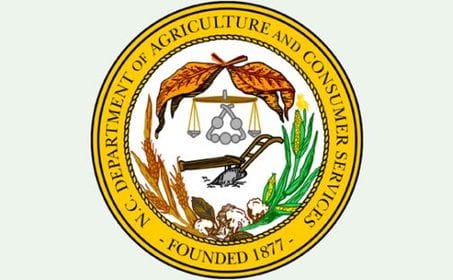Poultry owners are being encouraged to step up biosecurity measures due to the continued threat of a highly contagious bird influenza responsible for more than 100 bird deaths since mid-January.
State Veterinarian Dr. Mike Martin said poultry owners from backyard chickens to commercial facilities should be aware that High Path Avian Influenza continues to be a concern in the state. He said poultry should stay indoors if possible.
The N.C. Department of Agriculture and Consumer Services, along with the United States Department of Agriculture and the North Carolina Wildlife Resource Commission has been tracking the highly pathogenic Eurasian H5 avian influenza first identified in January in wild waterfowl in our state.
“Since Jan. 16, more than 100 wild birds have tested positive for HPAI in North Carolina,” Martin said. “The wild waterfowl that tested positive in our state are still wintering in the Carolinas. HPAI has also been confirmed in 17 commercial poultry farms across seven states and 10 backyard/independent flocks in seven states. These positive cases in domestic poultry flocks in other states continue to rise, which is concerning. North Carolina has not had a case of HPAI in domestic poultry.”
This type of HPAI virus is considered a low risk to people according to the U.S. Centers for Disease Control, but is dangerous to other birds, including commercial and backyard flocks of poultry.
If your birds are sick or dying, report it right away to your local veterinarian, the N.C. Department of Agriculture and Consumer Services Veterinary Division, 919.707.3250, or the N.C. Veterinary Diagnostic Laboratory System 919.733.3986.
If you have questions about migratory birds, hunting, or wild waterfowl found dead on your property, visit the N.C. Wildlife Resources Commission’s website at www.ncwildlife.org.
